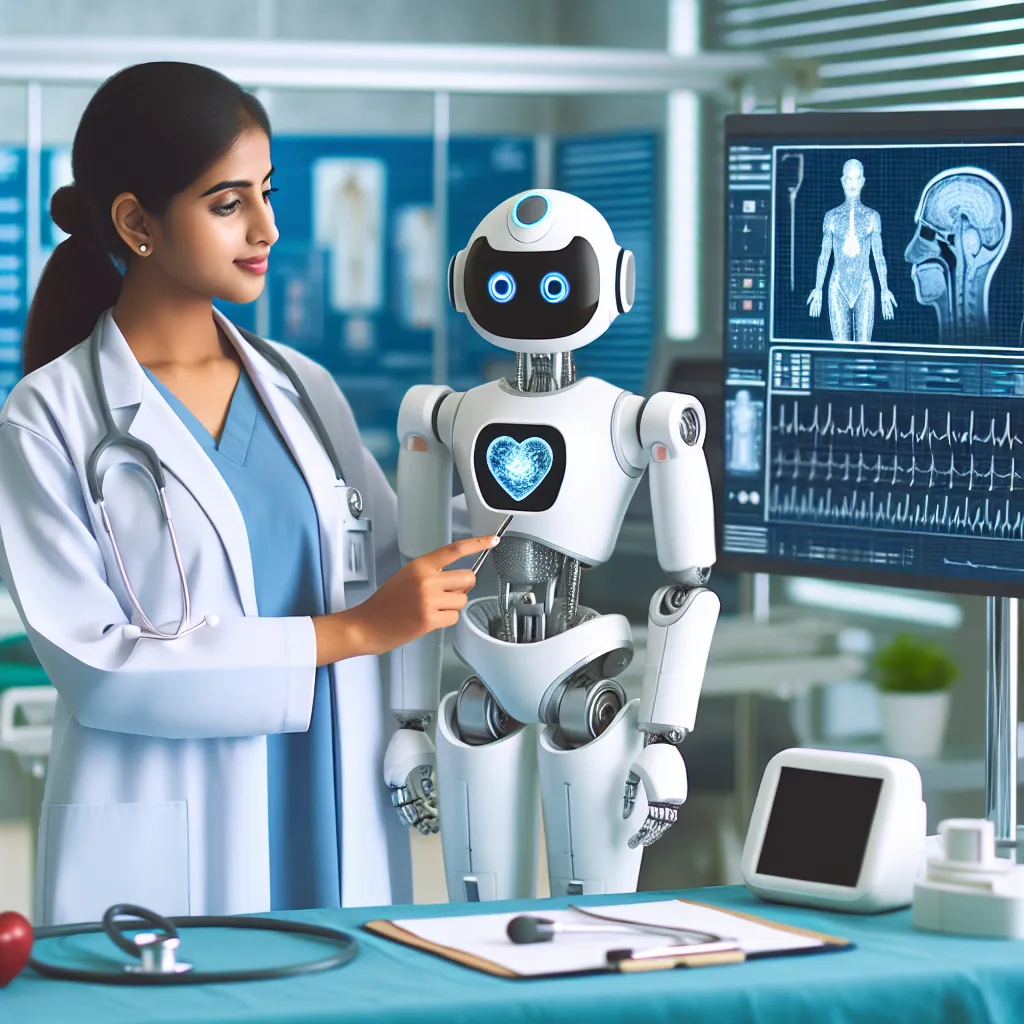Advancements in AI Technology Transforming Healthcare
The role of artificial intelligence in healthcare has been significantly transformed by advancements in AI technology. AI has revolutionized the healthcare industry by enhancing the efficiency and accuracy of medical diagnosis, treatment, and patient care. With the integration of AI technology, healthcare professionals can access vast amounts of data and leverage powerful algorithms to identify patterns, make predictions, and personalize treatment plans.
One of the key areas where AI technology is making a considerable impact is in medical imaging. Advanced AI algorithms have the capability to analyze medical images such as X-rays, MRI scans, and CT scans with remarkable precision, helping in early detection and diagnosis of various medical conditions. This not only expedites the diagnostic process but also contributes to more accurate and reliable results, ultimately leading to improved patient outcomes.
Moreover, AI-powered predictive analytics is playing a crucial role in identifying potential health risks and predicting disease progression. By analyzing patient data, AI systems can assess the likelihood of developing certain medical conditions, allowing healthcare providers to intervene proactively and provide personalized preventive care.
Furthermore, AI is streamlining administrative tasks and optimizing healthcare operations. AI-based solutions are automating routine administrative processes, such as appointment scheduling, billing, and medical record management, allowing healthcare professionals to focus more on patient care. With the introduction of virtual health assistants powered by AI, patients can now access personalized medical advice and support round the clock, enhancing the overall patient experience.
In conclusion, advancements in AI technology are revolutionizing the healthcare landscape, empowering healthcare professionals to deliver more precise diagnoses, personalized treatment plans, and improved patient care. As AI continues to evolve, its potential to transform healthcare and improve patient outcomes is limitless.
Overall, the transformative impact of AI technology in healthcare is evident, with continuous advancements paving the way for enhanced medical practices, improved patient outcomes, and more efficient healthcare delivery.
The Impact of AI on Diagnosis and Treatment in Healthcare
Artificial Intelligence (AI) is revolutionizing the healthcare industry, particularly in the areas of diagnosis and treatment. The impact of AI on healthcare has been substantial, enhancing the speed and accuracy of medical diagnosis and the development of personalized treatment plans.
AI algorithms can analyze complex medical data, including patient records, medical images, and genetic information, to identify patterns and make predictions with a level of precision that was previously unattainable. This ability to process vast amounts of data enables healthcare professionals to diagnose conditions at an earlier stage and with greater accuracy, ultimately leading to improved patient outcomes.
Furthermore, AI plays a significant role in the development of personalized treatment plans by considering individual patient data, such as genetic makeup, lifestyle factors, and treatment response. This personalized approach allows for tailored interventions that are more effective and have fewer side effects, ultimately improving patient care and experiences.
In addition to diagnosis and treatment, AI is also transforming the healthcare industry through the automation of routine tasks, drug discovery, and the prediction of disease outbreaks. As AI technology continues to advance, its impact on healthcare is expected to grow, offering new opportunities to improve patient care and advance medical research.
In conclusion, the integration of AI into healthcare has significantly impacted the diagnosis and treatment of medical conditions, leading to more accurate diagnoses, personalized treatment plans, and overall improvements in patient care.
Ethical and Legal Considerations in Implementing AI in Healthcare
When it comes to the implementation of artificial intelligence (AI) in healthcare, there are various ethical and legal considerations that need to be carefully addressed. The use of AI in healthcare raises concerns about patient privacy, data security, and the potential for bias in decision-making processes.
From an ethical standpoint, it is crucial to ensure that the use of AI in healthcare does not compromise patient confidentiality and privacy. Healthcare providers must adhere to strict data protection regulations and implement robust security measures to safeguard sensitive patient information.
Furthermore, the ethical use of AI in healthcare requires transparency and accountability in algorithmic decision-making. It is essential to mitigate the risk of bias in AI systems, as biased algorithms could lead to disparities in patient care.
On the legal front, healthcare organizations must navigate complex regulatory frameworks governing the use of AI in medical settings. Compliance with regulations such as the Health Insurance Portability and Accountability Act (HIPAA) in the United States is essential to ensure lawful and ethical use of AI in healthcare.
Moreover, liability issues emerge when AI systems are involved in clinical decision-making. Healthcare providers and AI developers must clarify legal responsibility in cases of adverse outcomes resulting from AI-generated recommendations or diagnoses.
In conclusion, the integration of AI in healthcare necessitates a meticulous examination of ethical and legal considerations. Striking a balance between harnessing the potential of AI technologies and ensuring ethical and legal compliance is paramount for the responsible implementation of AI in healthcare.

